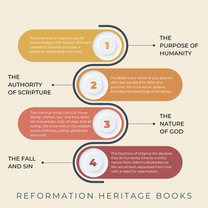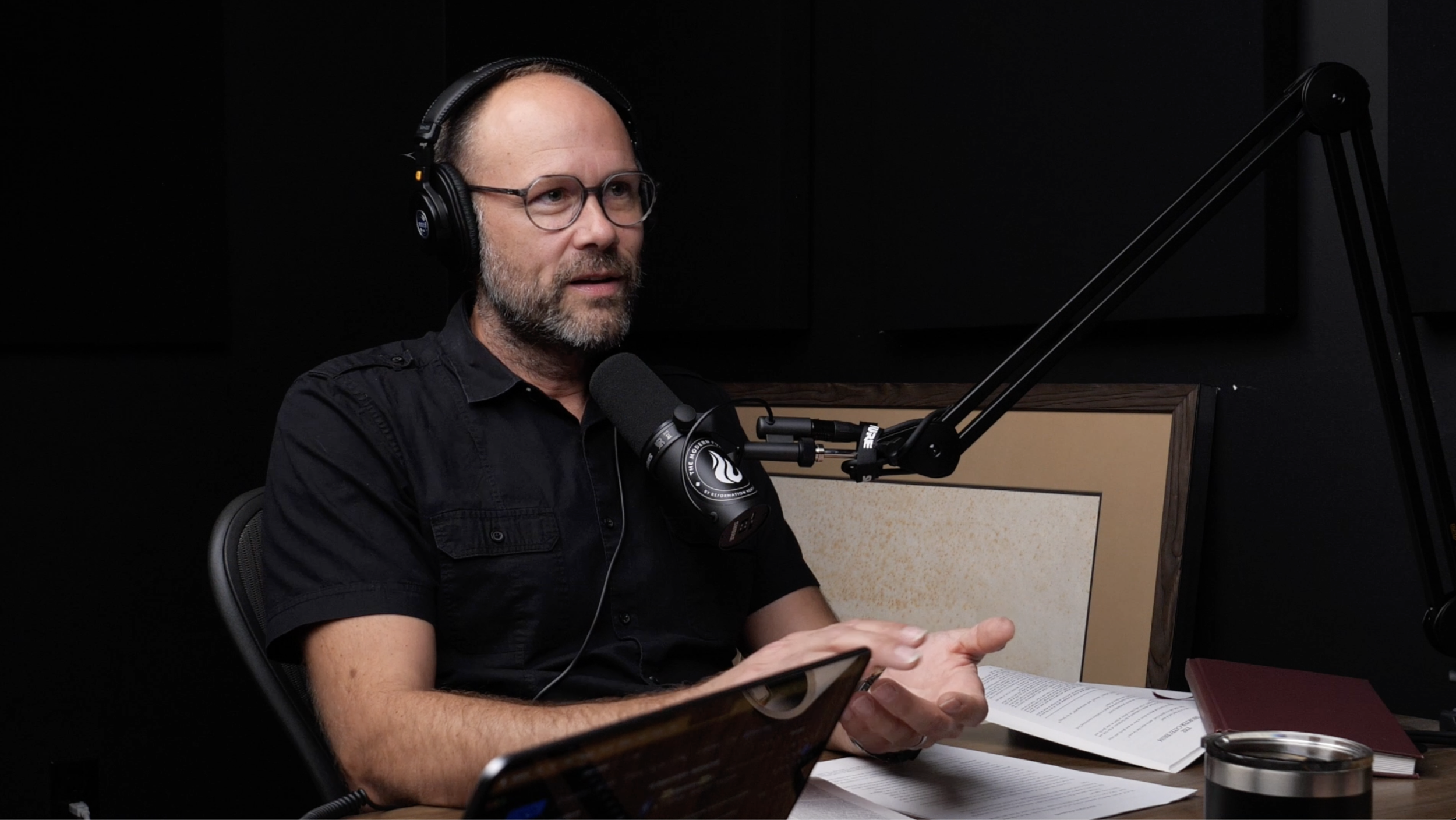The Nature of God: Theme #3 of the Westminster Shorter Catechism
Posted by William Boekestein on 8th Nov 2023
The study of God is at the same time impossible and inescapable. The question is fair: “Can you search out the deep things of God? Can you find out the limits of the Almighty?” (Job 11:7). In the depth of His being God is past finding out. His judgments are unsearchable and His ways inscrutable (Rom. 11:33). But it is also impossible to not study God. God reveals Himself everywhere. And everyone thinks something about God (Rom. 1:19). We are all theologians!
And studying God is incomparably fruitful. Theology humbles our hearts, expands our minds, and comforts our souls. Spurgeon was right: “He who often thinks of God, will have a larger mind that the man who simply plods around this narrow globe.”
The Westminster Shorter Catechism’s first question about God is surprising. It asks not who is God but, “What is God?” (WSC Q/A 4). Seeking out God is not like identifying a specific person out of a crowd but trying to figure out what kind of entity God is. In grappling with this question we should consider God’s being, attributes, and number. In fact, God’s being (who He is) and His attributes (what He’s like) are one. We only consider them separately to try to wrap our minds around a single subject at a time.
God’s Being
Our being and attributes are distinct. If I say, “I am tall” I am identifying one of my attributes. But I don’t mean that “I” and “tall” are the same thing. Tallness is just one “ingredient” of who I am. But God doesn’t have ingredients. God truly is love, to give just one example (1 John 4:8).
Even more simply we can say that God is. Human surnames are often based on someone or something on which one of our ancestors depended, like an occupation, or a location. But when God gave His name to Israel He simply called himself “I AM” (Ex. 3:14). God is the self-existent one, independent of all other being. God has no beginning or end. You can trace everything back to a starting point, except God. One day every created thing will be remade; God will not. He will continue as he always has. Everyone else on whom we might depend will fail us. God cannot.
The I AM is also different from us in this way: God is a Spirit. He does not have a body like people do. “God is Spirit, and those who worship Him must worship in spirit and truth” (John 4:24). The spirituality of God distinguishes Him from the physical creation. When the Son of God took on a body it did not change God’s essential being but united the divine with the physical world in order to save physical creatures.
But the catechism also lists virtues of God that describe who He is and what He’s like.
God’s Attributes
It can be helpful to distinguish between God’s perfections. Of some divine attributes—called “incommunicable”—there are no traces in the creature. God is infinite, not subject to limitation. So he is boundless in love, goodness, wisdom, etc. He is infinitely just, infinitely merciful. In terms of time he is eternal (Ps. 90:2). In terms of space he is everywhere present (Ps. 139:7–9). And God is unchangeable in his attributes. His character, purposes, and promises are eternally consistent. As creatures human beings are in an entirely different category from God.
And yet, created in His image, we have traits that are reflective of God; He has “communicable attributes.” God is wise (Dan. 2:20), perfectly able to use the best means to achieve the best ends. God is powerful. Robert Browning once wrote that a man’s reach should exceed his grasp. People should attempt things that may turn out to be impossible. But God’s reach never exceeds his grasp. God can do all his holy will. “With God all things are possible” (Matt. 19:26). God is holy, absolutely distinct from every other common thing in this world and free from any moral imperfection. God is just. He rightly governs the universe, rewarding obedience and punishing disobedience. God is good. Despite being abused by creatures He continues to shower rain upon the righteous and the wicked showing special kindness to his people (Matt. 5:44). And God is truth. God’s thoughts are the standard against which everything else must be tested.
God’s Number
The Athanasian Creed introduces basic Christianity in this way: “we worship one God in Trinity and the Trinity in unity” (art. 3). This is also the point of the catechism’s fifth and sixth questions and answers.
There is one God. The Old Testament emphasizes God’s oneness contrary to polytheism. The one God isn’t a local deity in competition with many others. Before He created all things there was nothing but Himself (Gen. 1:1; John 1:1–3). Besides the Lord there is no God (Is. 44:6, 8). The New Testament the authors can assume rather than argue that there is only one true God.” Even the demons “believe that there is one God” (James 2:19).
But there are three persons in the Godhead. The Old Testament gives Trinitarian hints. God speak of Himself in the plural (Gen. 1:26) and promises a Savior who would also be “Mighty God” (Is. 9:6), existing from eternity” (Mic. 5:2 NAS). “Holy, Holy, Holy,” is the right way to worship a triune being (Is. 6:3). The New Testament clarifies: The one true God is Father, Son, and Holy Spirit from whom flow rich blessings (2 Cor. 13:14) and into whose name disciples are baptized (Matt. 28:19). The three persons of the one God are the same in substance, power, and glory.
Our thinking and talking about God is like a three year old trying to describe his parents. What the child can say isn’t exhaustive; it might not even sound intelligent. But the child truly knows and loves his parents. There is no greater comfort than to know, trust, glorify, and enjoy God for who He is.
Devotions in the WSC? Sign me up!
Glorifying and Enjoying God: 52 Devotions through the Westminster Shorter Catechism is now available from Reformation Heritage Books. Get your copy today and begin your devotions through the WSC in just a few days from now.

